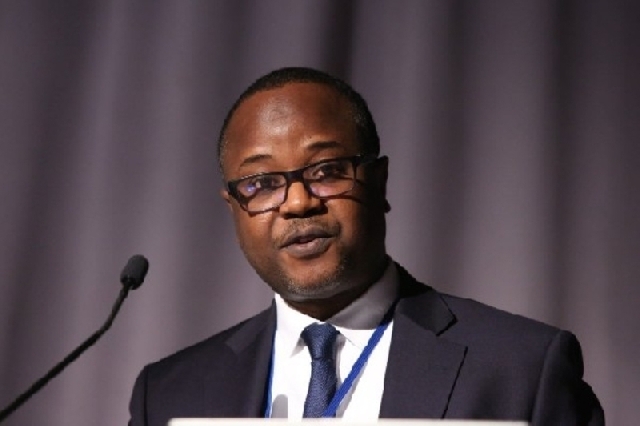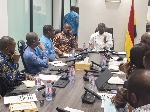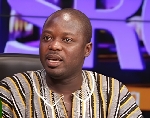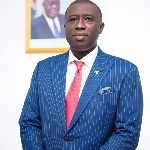We’re optimistic about recovery from economic crisis – First dep BoG governor
 Dr. Maxwell Opoku-Afari
Dr. Maxwell Opoku-Afari
Amidst one of the most challenging economic crises in decades, officials from the Bank of Ghana have expressed optimism about the country's recovery and outline their strategic plans for navigating the turbulent times.
Dr. Maxwell Opoku-Afari, the first deputy governor of the Bank of Ghana, and Kwamina Duker, CEO of the Development Bank Ghana (DBG), in an interview with the Banker, emphasised the importance of not letting this crisis go to waste but rather using it as an opportunity for positive change.
Mr. Duker stated, "Don't waste a crisis," highlighting the potential for behavioral changes and innovative approaches to doing business. Dr. Opoku-Afari echoed this sentiment, stressing the need to leverage the crisis for transformative initiatives. "Nobody wants to waste the crisis," he added.
According to reports from Reuters, Ghana successfully concluded the first phase of its domestic debt exchange in February, with an impressive 85% participation from eligible bondholders. Subsequently, in September, the country reopened the debt exchange, raising an additional 12.9 billion cedis ($1.1 billion) through local bonds.
The International Monetary Fund (IMF) announced a $3 billion extended credit facility arrangement for Ghana in May 2023. This financial support aims to steer the country back on track after it defaulted on its debts in late 2022. The IMF program focuses not only on addressing the immediate economic challenges but also on stimulating private investment and fostering growth.
Dr. Opoku-Afari acknowledges the impact of debt restructuring on the private sector, noting a temporary slowdown in capital flow. However, he expresses confidence in the recovery, stating, "We are done with the domestic debt restructuring, and we anticipate the external debt restructuring to conclude soon." He anticipates that as stability returns, commercial banks will increase credit levels to the private sector.
Highlighting signs of recovery in the banking sector during the first half of the year, Dr. Opoku-Afari emphasised the central bank's optimism. He envisioned a positive shift in the banks' approach, with increased lending to the private sector once stability is solidified.
Despite the challenges, Ghana has made significant strides in containing the crisis and achieving economic stability. Dr. Opoku-Afari noted a substantial decrease in inflation, dropping from 54% at the beginning of the year to 35% in November—a remarkable turnaround in just 10 months. Looking ahead, he stressed the importance of consolidating these gains to better prepare for the future.
Trending Business

President Mahama swears in Matilda Asante-Asiedu as Second Deputy Governor of Bank of Ghana
02:58
Minister of Energy and Finance engage Karpower on legacy debt
17:21
CEMSE urges PUWU to support private sector involvement in ECG revenue mobilisation
14:19
COCOBOD halts Cocoa roads projects over GH¢4 billion debt – CEO
10:09
Free Zones Authority CEO visits Blue Skies juice factory in Dobro-Nsawam
03:57
NPA boss calls on IGP to seek collaboration to fight fuel diversions
03:15
Cedi appreciates significantly in April as global dollar weakness boosts emerging market currencies — MP
02:56
Zoomlion clarifies contract with YEA amid public concerns
00:30
NPA hosts second downstream compliance workshop to strengthen petroleum sector standards
11:23
GFZA CEO tours Tema Free Zone Enterprises to strengthen strategic partnerships
11:05




